
Dziani Dzaha Crater Lake: A Hidden Gem in Comoros
Nestled on the island of Mohéli in the Comoros archipelago, Dziani Dzaha Crater Lake is a natural marvel waiting to be discovered. This stunning green lake, formed in an ancient volcanic crater, offers a tranquil escape from the hustle and bustle of city life. The lake's unique green color is due to the high sulfur content and the presence of algae, creating a captivating sight that attracts nature enthusiasts and photographers alike. Surrounded by lush greenery and diverse wildlife, Dziani Dzaha Crater Lake provides a perfect setting for hiking and bird-watching. The area is home to several endemic species, making it a paradise for bird lovers. The hike to the lake is relatively easy and offers breathtaking views of the surrounding landscape. Along the way, you'll encounter local flora and fauna, adding to the overall experience. Visiting Dziani Dzaha Crater Lake also provides an opportunity to learn about the local culture and traditions. The nearby villages offer a glimpse into the daily lives of the Comorian people, with their warm hospitality and rich heritage. Don't miss the chance to try local delicacies and explore the traditional markets. Whether you're an adventurer, a nature lover, or simply seeking peace and serenity, Dziani Dzaha Crater Lake is a must-visit destination in Comoros.
Local tips in Dziani Dzaha Crater Lake
- Wear comfortable hiking shoes for the trek to the lake.
- Bring a camera to capture the stunning green waters and scenic views.
- Visit during the dry season (May to November) for the best weather conditions.
- Respect local customs and traditions when visiting nearby villages.
- Carry sufficient water and snacks as there are limited facilities around the lake.
Dziani Dzaha Crater Lake: A Hidden Gem in Comoros
Nestled on the island of Mohéli in the Comoros archipelago, Dziani Dzaha Crater Lake is a natural marvel waiting to be discovered. This stunning green lake, formed in an ancient volcanic crater, offers a tranquil escape from the hustle and bustle of city life. The lake's unique green color is due to the high sulfur content and the presence of algae, creating a captivating sight that attracts nature enthusiasts and photographers alike. Surrounded by lush greenery and diverse wildlife, Dziani Dzaha Crater Lake provides a perfect setting for hiking and bird-watching. The area is home to several endemic species, making it a paradise for bird lovers. The hike to the lake is relatively easy and offers breathtaking views of the surrounding landscape. Along the way, you'll encounter local flora and fauna, adding to the overall experience. Visiting Dziani Dzaha Crater Lake also provides an opportunity to learn about the local culture and traditions. The nearby villages offer a glimpse into the daily lives of the Comorian people, with their warm hospitality and rich heritage. Don't miss the chance to try local delicacies and explore the traditional markets. Whether you're an adventurer, a nature lover, or simply seeking peace and serenity, Dziani Dzaha Crater Lake is a must-visit destination in Comoros.
When is the best time to go to Dziani Dzaha Crater Lake?
Iconic landmarks you can’t miss
Moheli Laka Lodge
Experience the untouched beauty of Moheli at Laka Lodge, your serene retreat in the Comoros, perfect for relaxation and adventure alike.

Bouni Beach
Discover the serene beauty of Bouni Beach, a tropical paradise in the Comoros, where relaxation meets adventure in a stunning coastal setting.
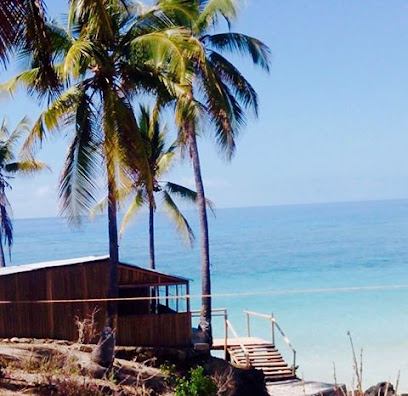
Dos du Dragon
Explore the stunning landscapes and rich culture at Dos du Dragon in Mitsamiouli, Comoros – a paradise for nature lovers and culture enthusiasts.
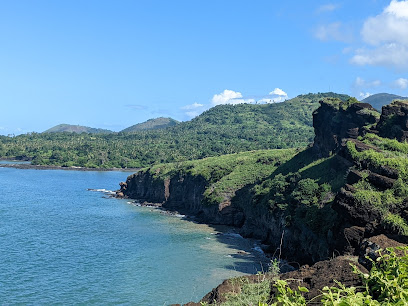
Le Trou Du Prophète
Explore the serene beauty of Le Trou Du Prophète in Mitsamiouli, Comoros, where nature meets tranquility and adventure awaits.
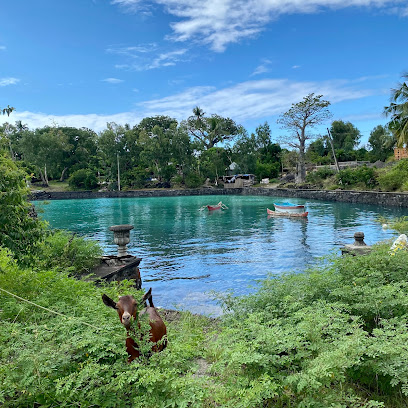
Baobab Magic - Backpacker & Resto
Discover the charm of Comoros at Baobab Magic - a cozy backpacker haven offering delicious local cuisine and an inviting atmosphere.
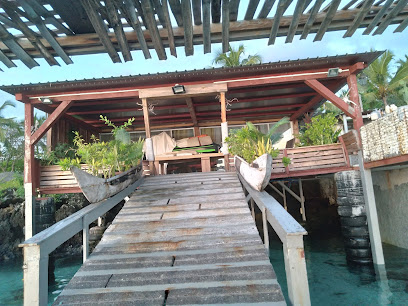
Akili Travel
Discover the Comoros Islands with Akili Travel: Your gateway to wildlife, culture, and breathtaking adventures.
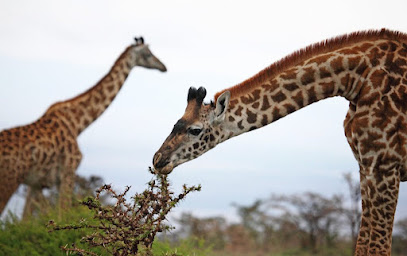
Dzia Landzé
Explore the tranquil Dzia Landzé Lake in Comoros, a serene escape surrounded by lush nature and vibrant local culture.
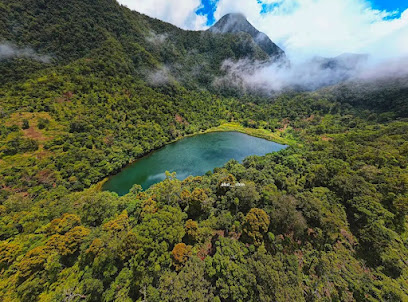
Comores Market VoloVolo
Discover the vibrant culture of the Comoros at Comores Market VoloVolo, a bustling supermarket filled with local flavors and unique goods.
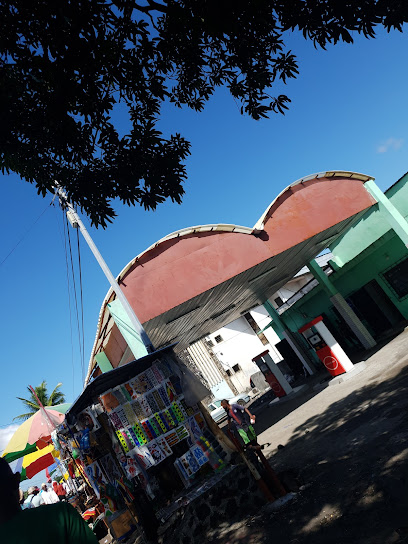
Plage de Moya
Plage de Moya: A pristine beach in Comoros, perfect for relaxation, snorkeling, and experiencing the local culture amidst stunning natural beauty.
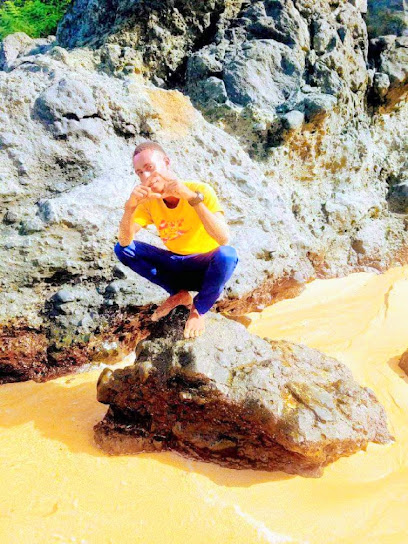
Dziani Boundouni
Explore Dziani Boundouni: A serene lake in Comoros offering stunning vistas, rich biodiversity, and a peaceful escape for all nature lovers.
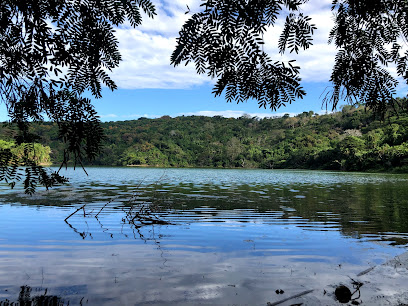
Le Gala - Mohéli
Discover the charm of Le Gala in Mohéli, a cultural hub offering delicious cuisine and breathtaking views in the heart of the Comoros.
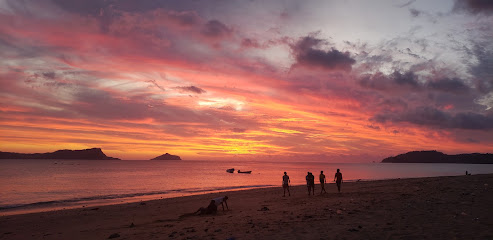
Youssouf Madi Masjid
Experience the serene beauty and cultural depth of Youssouf Madi Masjid in Fomboni, a spiritual haven in the heart of Comoros Islands.
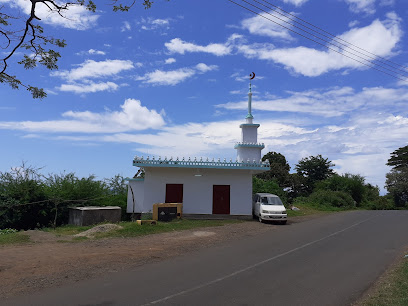
Dziani Mlabanda
Explore Dziani Mlabanda, a captivating seasonal lake in Comoros, surrounded by lush landscapes and unique geological wonders.

Chissioua Dzaha
Experience the serene beauty and rich culture of Chissioua Dzaha, an idyllic island paradise in the Comoros archipelago.

Unmissable attractions to see
Le Trou Du Prophète
Discover Le Trou Du Prophète in Mitsamiouli, Comoros: a blend of natural beauty, cultural richness, and tranquil recreation.
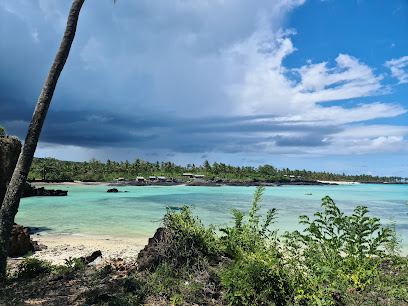
Dzia Landzé
Discover the serene beauty of Dzia Landzé, a breathtaking crater lake in the Comoros Islands, offering tranquility and stunning natural vistas.
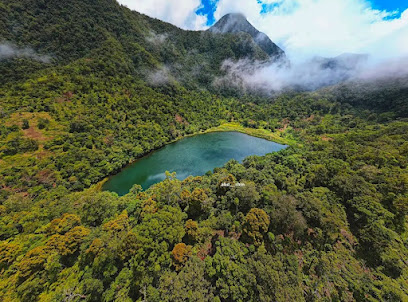
Chissioua Dzaha
Discover the unspoiled beauty of Chissioua Dzaha, a tranquil island escape in the Comoros archipelago, offering pristine beaches and lush landscapes.

Essential places to dine
Restaurant & Grill Le Coraya
Experience authentic Comorian cuisine at Restaurant & Grill Le Coraya - where fresh flavors meet stunning views.
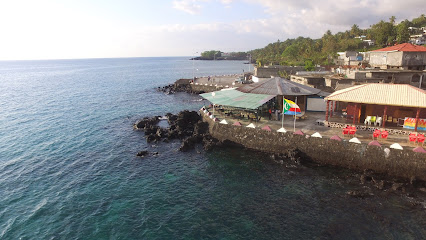
MoCafe
Discover the flavors of Comoros at MoCafe in Moroni – where local ingredients meet culinary creativity.
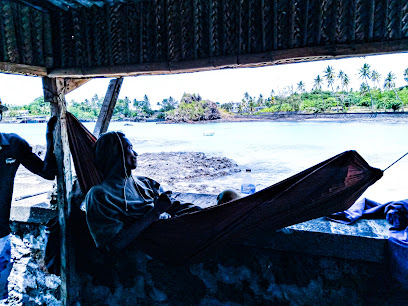
Restaurant L'Escale
Experience authentic Comorian cuisine at Restaurant L'Escale in Moroni - where every dish tells a story.
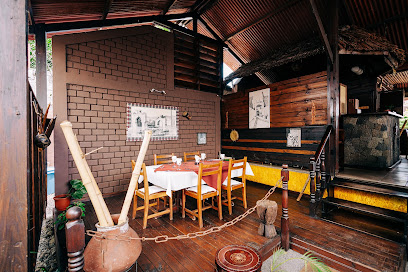
Wasta Boulangerie snack
Experience authentic Comorian flavors at Wasta Boulangerie in Asgaraly Moroni - a must-visit culinary gem on your travel journey.
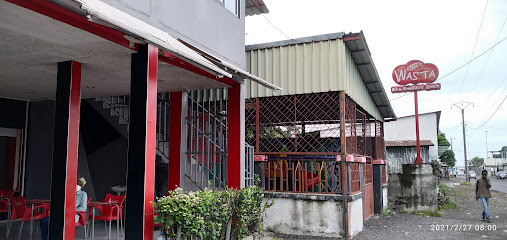
New Select Restaurant
Experience authentic Comorian cuisine at New Select Restaurant in Moroni - where every dish tells a story.
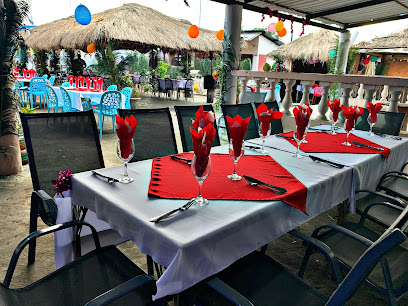
Le Trou Du Prophète
Experience tranquility at Le Trou Du Prophète – a serene recreation center nestled in nature's embrace in Mitsamiouli, Comoros.
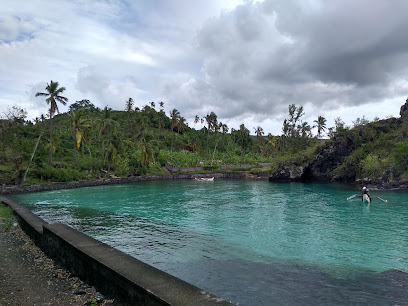
CHEZ NINI BAR GRILL
Discover exquisite dining at Chez Nini Bar Grill in Mitsamiouli - where local flavors meet international flair in a vibrant atmosphere.
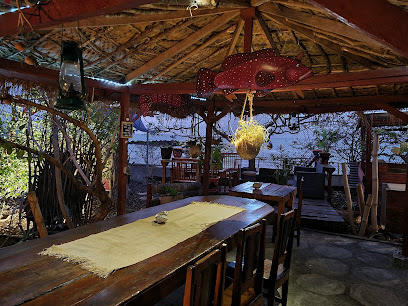
Baobab Magic - Backpacker & Resto
Experience authentic Comorian culture at Baobab Magic - Backpacker & Resto with delightful cuisine and warm hospitality.
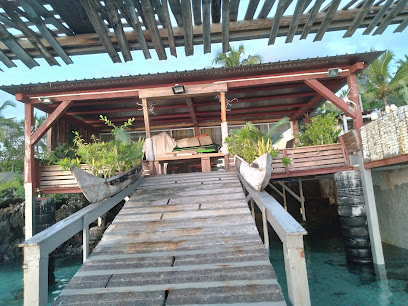
Comptoir des Iles-Al Quitoir
Discover comfort and authentic Comorian cuisine at Comptoir des Iles-Al Quitoir in Mutsamudu.

Miari-resto
Discover authentic Comorian cuisine at Miari-Resto, where every dish tells a story and every bite is a delight.
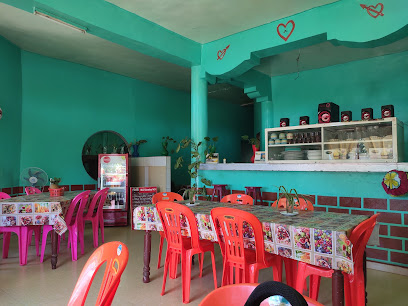
Délices Fruités
Experience authentic Comorian cuisine at Délices Fruités in Moroni – where fresh tropical flavors meet warm hospitality.
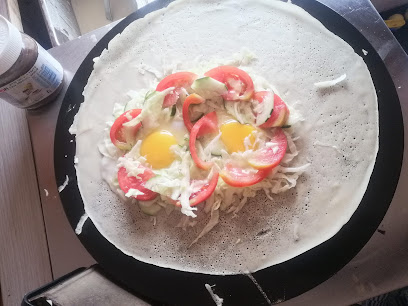
Chez Med Resto
Discover authentic Comorian cuisine at Chez Med Resto in Moroni – a culinary delight blending local flavors with modern flair.

Markets, malls and hidden boutiques
Dziani Dzaha
Discover the serene beauty of Dziani Dzaha, a breathtaking lake in Mayotte, perfect for relaxation, exploration, and nature appreciation.
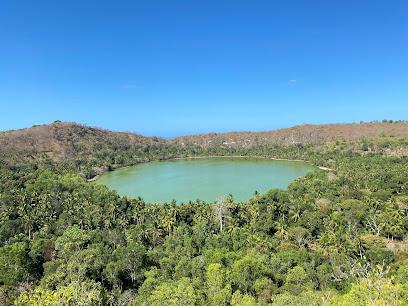
New-Bazar Minimarche
Explore the vibrant New-Bazar Minimarche in Moroni, a bustling supermarket offering a taste of local flavors and essential shopping.
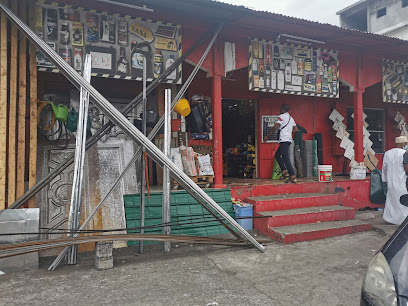
Adore Comores
Unveil the beauty of the Comoros Islands with Adore Comores – your gateway to unforgettable island adventures and rich cultural experiences.
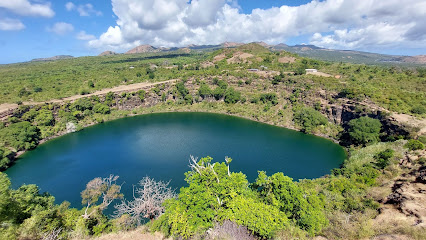
Place Chindoni
Experience the heart of Koimbani at Place Chindoni, a vibrant shopping mall offering local crafts, delicious cuisine, and cultural events.
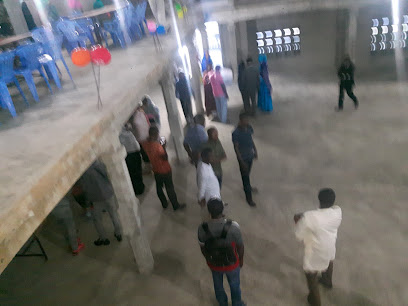
MAG MARKET
Explore the heart of Moroni at MAG MARKET, where local flavors and vibrant shopping come together in the Comoros islands.
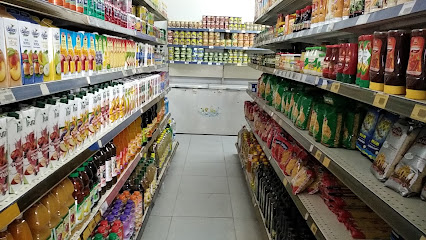
Chissioua Dzaha
Experience the stunning natural beauty and rich culture of Chissioua Dzaha, a hidden island paradise in the Comoros archipelago.

Essential bars & hidden hideouts
Restaurant & Grill Le Coraya
Discover the culinary treasures of Comoros at Restaurant & Grill Le Coraya, where authentic flavors meet a delightful dining atmosphere.
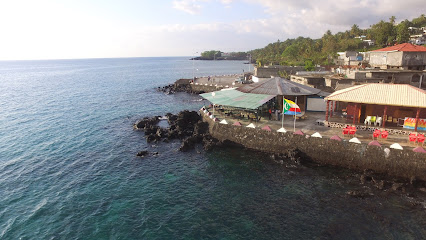
Wasta Boulangerie snack
Discover the authentic flavors of Comoros at Wasta Boulangerie, a delightful restaurant in Asgaraly Moroni serving exceptional snacks and pastries.
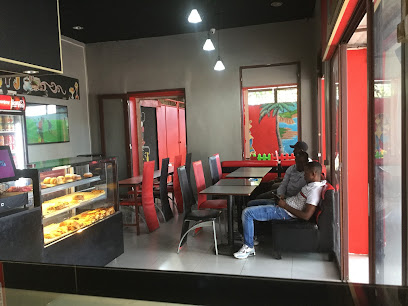
New Select Restaurant
Experience authentic Comorian cuisine in Moroni at New Select Restaurant, where every dish tells a story of the islands' rich culinary heritage.
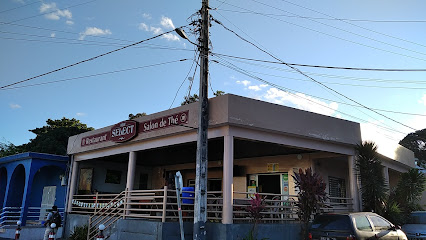
Bouni Beach
Experience the tranquil beauty of Bouni Beach in the Comoros, where golden sands meet crystal-clear waters for an unforgettable getaway.
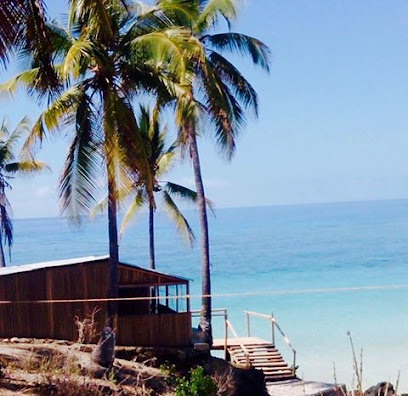
Dos du Dragon
Explore the breathtaking beauty and cultural richness of Dos du Dragon, a premier tourist attraction in Mitsamiouli, Comoros.
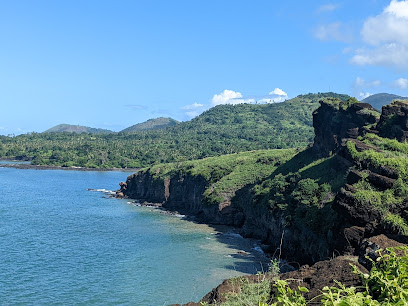
CHEZ NINI BAR GRILL
Discover the essence of Comorian cuisine at Chez Nini Bar Grill, a vibrant restaurant in Mitsamiouli offering authentic flavors and a welcoming atmosphere.
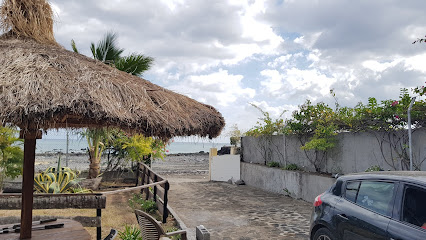
Local Phrases about Dziani Dzaha Crater Lake
-
- HelloSalam
[sa-lam] - GoodbyeKwaheri
[kwa-he-ri] - YesEewa
[ee-wa] - NoAh-ah
[ah-ah] - Please/You're welcomeTafadhali
[ta-fa-dha-li] - Thank youAsante
[a-san-te] - Excuse me/SorrySamahani
[sa-ma-ha-ni] - How are you?Vipi?
[vi-pi] - Fine. And you?Nzuri. Na wewe?
[nzu-ri. na we-we] - Do you speak English?Unasema Kiingereza?
[u-na-se-ma ki-in-ge-re-za] - I don't understandSifahamu
[si-fa-ha-mu]
- HelloSalam
-
- I'd like to see the menu, pleaseNingependa kuona menyu, tafadhali
[nin-ge-pen-da ku-o-na me-nyu, ta-fa-dha-li] - I don't eat meatSi kula nyama
[si ku-la nya-ma] - Cheers!Mambo!
[mam-bo] - I would like to pay, pleaseNingependa kulipa, tafadhali
[nin-ge-pen-da ku-li-pa, ta-fa-dha-li]
- I'd like to see the menu, pleaseNingependa kuona menyu, tafadhali
-
- Help!Usaidizi!
[u-sai-di-zi] - Go away!Nenda zako!
[nen-da za-ko] - Call the Police!Piga polisi!
[pi-ga po-li-si] - Call a doctor!Piga daktari!
[pi-ga dak-ta-ri] - I'm lostNimepotea
[ni-me-po-te-a] - I'm illNinaumwa
[ni-na-um-wa]
- Help!Usaidizi!
-
- I'd like to buy...Ningependa kununua...
[nin-ge-pen-da ku-nu-nu-a] - I'm just lookingNatazama tu
[na-ta-za-ma tu] - How much is it?Bei ni kiasi gani?
[bei ni ki-a-si ga-ni] - That's too expensiveHicho ni cha bei sana
[hi-cho ni cha bei sa-na] - Can you lower the price?Unaweza kupunguza bei?
[u-na-we-za ku-pun-gu-za bei]
- I'd like to buy...Ningependa kununua...
-
- What time is it?Ni saa ngapi?
[ni sa-a nga-pi] - It's one o'clockNi saa moja
[ni sa-a mo-ja] - Half past (10)Saa kumi na nusu
[sa-a ku-mi na nu-su] - MorningAsubuhi
[a-su-bu-hi] - AfternoonMchana
[mcha-na] - EveningJioni
[jo-ni] - YesterdayJana
[ja-na] - TodayLeo
[le-o] - TomorrowKesho
[ke-sho] - 1Moja
[mo-ja] - 2Mbili
[m-bi-li] - 3Tatu
[ta-tu] - 4Nne
[n-ne] - 5Tano
[ta-no] - 6Sita
[si-ta] - 7Saba
[sa-ba] - 8Nane
[na-ne] - 9Tisa
[ti-sa] - 10Kumi
[ku-mi]
- What time is it?Ni saa ngapi?
-
- Where's a/the...?Iko wapi...?
[i-ko wa-pi] - What's the address?Anuani ni gani?
[a-nua-ni ni ga-ni] - Can you show me (on the map)?Unaweza kunionyesha (kwenye ramani)?
[u-na-we-za ku-nio-nye-sha kwe-nye ra-ma-ni] - When's the next (bus)?Basi lijalo ni lini?
[ba-si li-ja-lo ni li-ni] - A ticket (to ....)Tiketi (kwenda ....)
[ti-ke-ti (kwen-da)]
- Where's a/the...?Iko wapi...?
History of Dziani Dzaha Crater Lake
-
Dziani Dzaha Crater Lake was formed as a result of volcanic activity millions of years ago. The lake, situated within a caldera, is a reminder of the island's fiery geological past. The alkaline lake is unique due to its high concentration of sulfur and other minerals, giving it a distinctive green hue.
-
Archaeological evidence suggests that the area around Dziani Dzaha Crater Lake has been inhabited for thousands of years. Early settlers were attracted to the fertile soil and abundant freshwater sources. Pottery shards and ancient tools found near the lake indicate the presence of a thriving community.
-
During the colonial era, the Comoros Islands, including the area around Dziani Dzaha Crater Lake, came under the control of various European powers. The French, who eventually established a more permanent presence, were particularly interested in the unique geological features of the lake. Scientific expeditions were conducted to study the mineral-rich waters and the surrounding ecosystem.
-
The local communities around Dziani Dzaha Crater Lake have a rich tapestry of traditional practices and beliefs. The lake is often considered sacred, and rituals are performed to honor the spirits believed to inhabit the waters. These traditions have been passed down through generations and remain an integral part of the cultural identity of the people.
-
In recent years, there has been a growing awareness of the need to preserve the unique environment of Dziani Dzaha Crater Lake. Conservation efforts have been initiated to protect the lake's delicate ecosystem from the impacts of pollution and human activity. Local and international organizations are working together to ensure the sustainable management of this natural wonder.
Dziani Dzaha Crater Lake Essentials
-
Dziani Dzaha Crater Lake is located on the island of Mohéli in the Comoros archipelago. The nearest international airport is Prince Said Ibrahim International Airport on the island of Grande Comore. From there, you can take a domestic flight to Mohéli Bandar Es Eslam Airport. Alternatively, you can catch a ferry from Grande Comore to Mohéli. Once on Mohéli, taxis and car rentals are available to reach Dziani Dzaha Crater Lake.
-
Mohéli is a small island, and many destinations, including Dziani Dzaha Crater Lake, are accessible by road. Taxis are a convenient option for getting around. Car rentals are also available and provide flexibility for exploring at your own pace. For a more local experience, you can take minibuses (known as 'bush taxis'), but they can be crowded and less reliable in terms of schedule.
-
The official currency in Comoros is the Comorian Franc (KMF). Credit cards are not widely accepted, so it is advisable to carry sufficient cash. ATMs are available on the island, but it is wise to withdraw enough money before traveling to more remote areas like Dziani Dzaha Crater Lake. U.S. dollars and Euros are sometimes accepted, but it is better to have local currency for smaller vendors and services.
-
Dziani Dzaha Crater Lake and Mohéli, in general, are relatively safe for tourists. However, it's advisable to take standard precautions. Avoid walking alone at night in unfamiliar or poorly lit areas, and keep an eye on your belongings in crowded places. There are no specific high-crime areas targeting tourists, but it's always best to stay vigilant and aware of your surroundings.
-
In case of an emergency, dial 17 for the police and 18 for medical emergencies. The main hospital on the island of Mohéli is located in the capital, Fomboni. It is recommended to have travel insurance that covers medical emergencies. For minor health issues, there are pharmacies in Fomboni where you can purchase over-the-counter medications.
-
Fashion: Do dress modestly, especially when visiting religious sites. Avoid wearing revealing clothing. Religion: Do respect local customs and traditions. Remove your shoes when entering homes and religious sites. Public Transport: Do be polite and respectful to drivers and fellow passengers. Public transport may not always run on a fixed schedule. Greetings: Do greet people with a friendly 'As-salamu alaykum' (Peace be upon you). A handshake is common among men, but women should wait for a man to offer his hand first. Eating & Drinking: Do try local delicacies and accept food offerings graciously. Don’t eat or drink in public during Ramadan, as it is considered disrespectful.
-
To experience Dziani Dzaha Crater Lake like a local, visit the nearby villages and interact with the residents. They are often friendly and willing to share stories about the area's history and culture. Don't miss the opportunity to hike around the crater and take in the stunning views of the lake and surrounding landscape. For a unique experience, try to visit during local festivals to see traditional dances and celebrations.
Nearby Cities to Dziani Dzaha Crater Lake
-
Things To Do in Ouani
-
Things To Do in Acoua
-
Things To Do in Chiconi
-
Things To Do in Sada
-
Things To Do in Koungou
-
Things To Do in Mamoudzou
-
Things To Do in Dembeni
-
Things To Do in Chirongui
-
Things To Do in Bandrele
-
Things To Do in Iconi
-
Things To Do in Moroni
-
Things To Do in Nosy Be
-
Things To Do in Mahajanga
-
Things To Do in Majunga
-
Things To Do in Antsiranana




